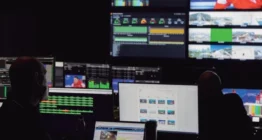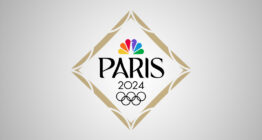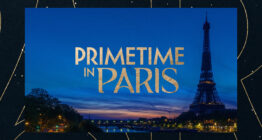Analysis: Technology and storytelling converge in Paris Olympic coverage

Weekly insights on the technology, production and business decisions shaping media and broadcast. Free to access. Independent coverage. Unsubscribe anytime.
As the world’s attention turns to Paris for the 2024 Summer Olympics, a less visible but equally significant competition is unfolding behind the cameras.
The Olympic Games have long been a showcase for athletic prowess and technological innovation in broadcasting. From the first televised Games in Berlin in 1936 to the rise of HD and new formats like HDR and 4K, the Olympics have consistently pushed the boundaries of what’s possible in sports media.
This year’s Games promise to continue that tradition, arriving at a moment when AI and streaming are on the minds of broadcasters around the globe.
Traditional television viewership is declining while streaming platforms continue to gain ground. Social media has transformed how audiences engage with live events, and emerging technologies like artificial intelligence and virtual reality are opening new frontiers in content creation and distribution.
Against this backdrop, the Paris Olympics represent a test for broadcasters. Can they harness new technologies to capture the attention of increasingly fragmented audiences? Will innovations in content delivery enhance or detract from the communal experience that has long been central to the Games’ appeal?
AI steps into the spotlight
One of the most interesting developments at this year’s Games is NBC Sports’ decision to use an AI-generated version of legendary sportscaster Al Michaels for daily Olympic recaps on its streaming platform, Peacock. Is this the first step towards AI announcers for other broadcasts?
The technology’s ability to generate personalized content is impressive. It could potentially allow viewers to receive tailored highlights packages narrated in a familiar voice. However, this raises questions about the future of sports commentary. Will audiences connect with an AI narrator like they do with human commentators? Could this technology eventually replace live announcers altogether?
The implications extend beyond the broadcast booth.
AI is also making inroads in other areas of Olympic coverage. Alibaba Cloud’s AI-enhanced multi-camera replay system, set to be deployed at 12 venues in Paris, promises to offer viewers control over their perspective on the action. If successful, this technology could change how audiences engage with major sports events, moving them from passive viewers to active directors.
Behind the scenes, machine learning algorithms automate video editing, generate real-time graphics, and even assist in storytelling by identifying key moments and themes in live footage.
The potential for AI to streamline production processes and create more engaging content is enormous, but it also raises concerns about the potential loss of the human touch in sports coverage.
Storytelling gets a tech upgrade
While the athletic competitions remain the heart of the Olympics, the human stories behind the games have always been crucial to their appeal. This year, broadcasters are leveraging new technologies to bring those stories to life.
NBC’s deployment of 360-degree 3D replay capabilities and cinematic cameras at multiple venues isn’t just about prettier pictures – it’s about immersion. These tools can potentially transport viewers from their living rooms to the heart of the action, creating a more visceral connection to the athletes and their performances. Imagine viewing a gymnast’s routine from any angle or following a track athlete’s every stride in ultra-slow motion.
Meanwhile, advanced graphics and analysis tools from companies like SMT, Piero and Dartfish aim to break down the nuances of Olympic sports for casual viewers.
In an era of fragmented attention spans, the ability to quickly and clearly explain the difference between a good performance and a great one could be crucial in maintaining audience engagement. These technologies can overlay real-time data on live footage, helping viewers understand the strategy behind a cycling race or the mechanics of a perfect dive.
Primetime in the age of anytime
With Paris six hours ahead of the U.S. East Coast, NBC faces the perennial challenge of packaging Olympic content for primetime audiences who may already know the results. Their solution appears to be doubling down on storytelling and personality-driven content.
The network’s “Primetime in Paris” show, hosted by Mike Tirico from a studio with a view of the Eiffel Tower, is designed to create a nightly Olympic variety show more than a traditional sports broadcast. The inclusion of Snoop Dogg as a special correspondent clearly signals that NBC is prioritizing entertainment value and cultural relevance over pure sports coverage.
This shift reflects a broader trend in sports media – recognizing that the value proposition of primetime sports programming has fundamentally changed in a world of instant highlights and real-time results.
It’s no longer enough to show the day’s best performances; broadcasters must create a compelling narrative arc that keeps viewers tuned in night after night.
The question is whether this more personality-driven approach will resonate with viewers or feel like a distraction from the athletic achievements at the heart of the Olympics.
Streaming takes center stage
Perhaps the most significant trend to watch this summer is the continued rise of streaming platforms in Olympic coverage.
Peacock is set to play a central role in NBC’s strategy, offering extensive live and on-demand content. The launch of Team USA TV, a free ad-supported streaming television (FAST) channel, further underscores the industry’s belief in the power of niche, targeted content.
This proliferation of streaming options presents both opportunities and challenges.
On one hand, it allows for more personalized and comprehensive coverage than ever before. Viewers can potentially watch any event they want, live or on-demand, across multiple devices. On the other hand, it requires significant investment in infrastructure and raises questions about the fragmentation of the Olympic audience.
As viewing habits spread across platforms and time zones, the Games could lose some of their power as a shared cultural moment. Broadcasters will need to leverage streaming’s flexibility while still creating tentpole moments that unite audiences.
Beyond Paris
As the opening ceremony approaches, it’s clear that the Paris 2024 Olympics will serve as much as a laboratory for broadcasting innovation as a showcase of athletic excellence. Integrating AI, advanced storytelling technologies and streaming platforms is pushing the boundaries of what’s possible in sports coverage.
These advancements bring important questions about the future of sports broadcasting and maybe shed light on where we are headed.
The technologies and strategies deployed in Paris will likely influence sports broadcasting beyond the Olympics. From major league sports to local competitions, the lessons learned this summer could ripple through the entire sports media ecosystem.
Watching the athletic drama unfold in Paris makes it worth noting the technological feats happening behind the scenes.










tags
2024 Summer Olympics, AI, Artificial Intelligence, NBC Olympics, nbc sports
categories
Analysis, Heroes, Olympics, Sports Broadcasting & Production, Voices